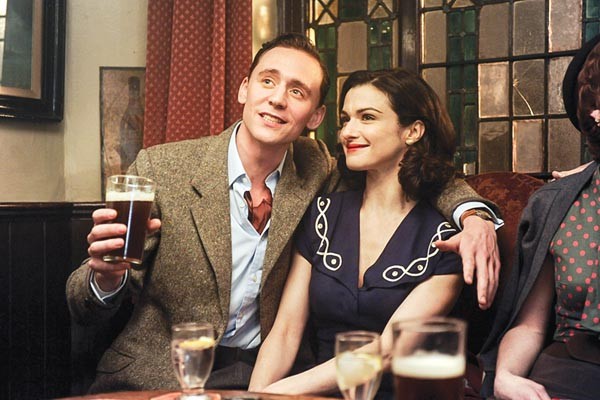When a tale begins with a suicide attempt, it's a good sign you're in for a downbeat ride. And that's the case with Terence Davies' drama, adapted from the 1952 Terence Rattigan play.
It's London circa 1950, and we meet Hester (Rachel Weisz) in a shabby flat, as she's swallowing pills and turning on the gas. Her voiceover reads a note to "Freddie," and how she can't go on without him. But her attempt is thwarted, and through flashbacks, and the remains of that day, we learn what matters about Hester.
She's married to an older, dull judge, but has left her husband for an affair with Freddie (Tom Hiddleston), a former RAF pilot who's a bit of cad. As evidenced by the ruined streets, these are people still discombobulated by the war: There's the pervasive sense that the war crisis kept the lid on various social and emotional undercurrents that are now bursting through the cracks. Hester's dilemma is that she longs for something more, but can see no pathway other than her self-destructive actions. (Hence the work's title, and being caught between the devil and the deep blue sea.)
Davies' film is slowly paced, and feels a bit stuffy and old-fashioned. It can't quite escape its theatrical dialogue and set-ups, while there are other moments that recall Hollywood's lushly scored post-war disastrous-affairs melodramas. Despite its affectations, the film is well acted, with Weisz silently shouldering much of the film's emotional weight. The end of the affair is predictable fare, but for those who can supply some of the story's larger cultural and historical contexts, there's a meatier tale here. Starts Fri., April 27. Regent Square
















